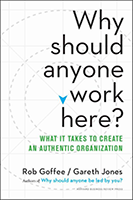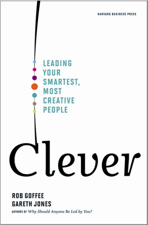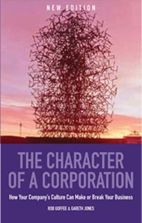What we say...
-
3 Critical Skills to Teach in Leadership Training
Sunday 1st September 2019
-
Leadership, Change and Uncertainty
Friday 6th April 2018
-
What does the Oxfam scandal tell us about organisations
Friday 23rd February 2018
-
I look forward to speaking at The HR Congress
Tuesday 31st October 2017
-
Why should anyone work here - Animation
Friday 11th December 2015
The Deepest Deficit: Trust - A Response
Our last blog brought a wide range of responses. Most
enthusiastically endorsed our view that we have a problem with trust. Recent
events have reinforced this view. Several of you made a point with which we
absolutely agree – it’s not just organisations, it’s about individual behaviour
and in particular the actions of leaders.
So how can we restore trust?
Firstly, leaders and organisations must provide a sense of moral purpose, an overarching set of values which makes work coherent and effort intrinsically rewarding and recognizes motives beyond profit maximization. In corporate governance we are beginning to see the growth of triple bottom line reporting. Novo Nordisk, for example, recognizes its responsibilities in the financial, social and environmental realms and this belief is central to its culture. We should be clear that this is much more than a corporate “greenwash”. A pale emulsion which merely disguises traditional practices. On the contrary, employees are held to account against these values. They are measured against a clear set of criteria encapsulated in the Novo Nordisk Way of Management. Such practices point to an increasing degree of transparency. Leaders know via a thorough process of organisational auditioning that they must exemplify key organisational values. This has enormous practical implications. Novo has become a beacon for talent and one of the most desired places to work.
Secondly, leaders must embrace a kind of radical honesty. We will need to be more honest with customers. People bought the shoes and didn’t run any faster. They bought the perfume and didn’t become irresistible. Consumers are increasingly suspicious of the claims that organizations make.
We also need to be more honest with employees. Facing severe financial cutbacks in the NHS, for example, the Finance Director at the world renowned Royal Marsden Hospital told us that leaders need “a kind of brutal honesty - because people can see and read the media and have friends and family who have been affected”.
In addition, social media has made deception and misinformation harder and harder to sustain. Legislative changes like the freedom of information act make organization secrets harder to keep. Blogging, twittering and whistleblowing have, in a relatively short period of time, transformed the ways in which leaders need to communicate. This change has organizational dimensions – like different reporting standards and leadership implications. Increasingly, leaders need to tell their followers what is happening before someone else does.
The recent scandals which have engulfed News Corporation bring home the new world – even the most powerful can be brutally exposed.
Leaders must aspire
to moral authority. Neither hierarchy nor charisma will suffice. They must
practice radical honesty where spin and deception have no place. None of this
will be easy. It will require leaders to think differently – about ownership,
values and organisational purpose. It will require new ways of organising;
different relationships with employees, partners and customers; and new ways of
thinking about and measuring performance.



